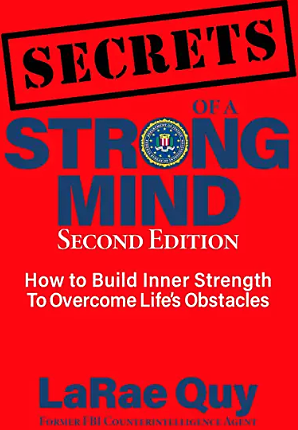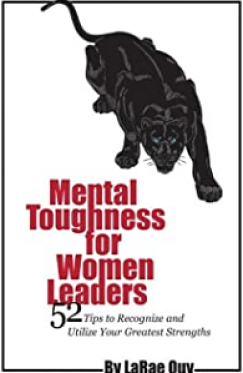Until recently, trauma was believed to be one of the prevalent ways our lives got f*cked up and created serious mental health issues. More recently, however, psychology has come to terms with the fact that trauma is very common. Trauma, obstacles, and adversity is not only a fact of life, it’s how people grow stronger. It’s estimated that 90% of people who experience adversity also experience some form of personal growth in the following months and years.
But here’s the thing: it’s not the trauma or obstacle itself that will develop you into a stronger person. It’s the work you put into understanding your place in the world as a result of the adversity that will make you stronger and more resilient.
Adversity shakes up our world. It makes us question everything we had understood to be true about what makes us tick, and what makes others tick as well. Very often, we need to rebuild ourselves in some way, and in that process, we take a long, hard look at the foundation upon which our assumptions about life are built.
It’s up to us: We can choose to be resilient and grow from our pain, or we can whimper as we wait for the next shit storm to hit, because trauma, obstacles, and adversity are a fact of life, and another storm will hit us at some point in the future.
For way too long we’ve focused on the negative side of trauma because there’s no doubt that too much trauma can damage us. Too many of our soldiers suffer PTSD to think otherwise, but the study of resilience has shown us how our response to negative events can also make us stronger.
Psychologist Emmy Werner called resilience an internal focus of control. People who are resilient believe they, and not their circumstances, will determine their achievements in life. Resilient people are mentally tough because they believe they can overcome their circumstances rather than expect their circumstances to change.
Are you mentally tough? Take this FREE assessment.
Here are tips on how to be resilient and grow from your trauma:
1. It’s A Matter Of Perspective
Psychologist George Bonanno’s research has led him to believe that events are not traumatic until we experience them as traumatic. In other words, it’s our perspective on an event that determines whether we experience trauma.
Childhood is seldom a perfect experience for any of us. We’ve all been crapped on yet most of us sailed through with no problem. Until—our “woke” culture told us that we had been traumatized and needed to seek reparation for the slights we’ve experienced in life. Only wimps fall for this because there are legitimate victims out there and unless you fall into that category, you have no right to take attention away from them with your first world problems. Everyone gets kicked around a little so grow up and learn from your experiences.
We’re a victim if we see ourselves as a victim. It’s possible to make ourselves less vulnerable by the way we think about things that happen to us. We don’t become resilient in spite of our adversity; we become resilient because of it.
How To Make It Work For You: Reframe your situation in positive terms and look for ways you can grow and learn from the experience. Take the time to examine what the pain and discomfort is there to teach you. People often learn something about themselves in the midst of struggle. Trauma and adversity can give you a heightened appreciation for life. You become resilient when you use obstacles and adversity to clarify what actually matters to you.
2. Adversity Doesn’t Need To Be Traumatic
The crap that happens in life doesn’t have to be interpreted as traumatic if you train yourself to think differently about it. Psychologist Martin Seligman has found that if you change the way you talk to yourself about a crappy event, you can become more resilient.
- Change your explanation from internal to external: “The event wasn’t my fault.”
- Change your explanation from global to specific: “This is one incident but has no effect on other areas of my life.”
- Change your explanation from permanent to impermanent: “I can change the situation,” rather than assume there’s nothing you can do.
When you change your focus from helplessness to one of control, you learn how to become more resilient in the face of adversity and obstacles.
How To Make It Work For You: It’s natural to feel sorry for ourselves and ruminate on our pain, whether it’s shame, guilt, or fear. It sucks because we keep a replay of an event in our head where it runs over and over. Author Julia Cameron encourages her readers to write morning “pages” to help them gain insight on the challenge in their lives. She suggests that people free write for twenty minutes when they first get up in the morning. The idea is that this is the time to probe the challenge or obstacle that is at the forefront of our thoughts. The goal is to explore their deepest thoughts and feelings about it on paper. It doesn’t need to be perfect but it does need to be honest and expressive.
3. Forge A New Understanding Of Yourself
In her mid-forties, Alice was beset with a series of health issues. First, it was a diagnosis of ischemia which results in inadequate blood supply to an organ or part of the body, especially the heart muscles. This was followed by an undiagnosed thyroid condition that left her with anxiety and unable to sleep. Finally, she experienced severe panic attacks that left her paralyzed and afraid to leave the house.
The world had become a scary place for Alice; she was convinced she was going to die. The first thing she did was turn to prayer and meditation to calm her mind. Each prayer asked God to show her what she needed to learn from her trauma. This began a year of self-discovery that helped lead Alice out of the dark corners of her mind and into a better place. For Alice, it was God’s way of getting her undivided attention and she looked back on that experience as her biggest time of personal growth.
The most painful and disruptive thoughts are usually about either the past or the future. Our need to make sense of our pain and trauma is powerful enough that even people with no religious beliefs will find themselves telling stories about how their own suffering played a crucial role in their life. Their narrative will include how they brought meaning out of their suffering.
How To Make It Work For You: Follow Alice’s example and use forms of prayer or meditation to learn more about the most important person in your life—you! Prayer and/or meditation are excellent ways you can deal with negative emotions instead of getting carried away by fear, anger, or despair. They are tools to use so you can work through the trauma or adversity with more deliberation and intention. There may not be simple answers but we all seek to avoid a world darkened by suffering that is meaningless.
© 2020 LaRae Quy. All rights reserved.
You can follow me on Twitter, Facebook, Instagram, AND LinkedIn
Are you mentally tough? Here is my FREE Mental Toughness Assessment
Check out my new online training program at www.SecretsOfAStrongMind.com
Get my new book, “Secrets of a Strong Mind (second edition): How To Build Inner Strength To Overcome Life’s Obstacles”
Author of “Mental Toughness for Women Leaders: 52 Tips To Recognize and Utilize Your Greatest Strengths”





I support a group where many of the people in it say things like “This is the hardest thing I’ve ever gone through. I don’t think I can do it. This is too much.” Then, they’re reminded that they are doing it, they are getting through it and while it is hard, they have what it takes to persist – and grow through the process. Instead of feeling powerless, the people in this group transform from powerless to powerful when they acknowledge that their circumstances were not their choice but the rest is… their response.
Alli
Wow, Alli! Thanks for sharing such a powerful example of how we can empower ourselves by simply changing the way we look at ourselves and our circumstances…our response is everything.
A great read.
Inspiration on so many levels.
Thank you for sharing.
I’m so glad that you liked it!
Great post LaRae! I have always believed that we each learn something about ourselves when we experience difficulty. When I first learned to drive in the snow I had a car accident that stayed with me for the rest of my life. To this day, I have a healthy respect for icy and snowy roads. It taught me not to be a dare devil but rather stay calm and focused in snowy conditions. I love your line: “We don’t become resilient in spite of our adversity; we become resilient because of it.”
Isn’t it the pits that adversity and obstacles produce the lessons we most remember, and learn from, in life? Why can’t it be easier for a lesson to be driven home…but understanding that the brain always pays more attention to negative information and experiences, it helps us overcome the trauma of adversity.